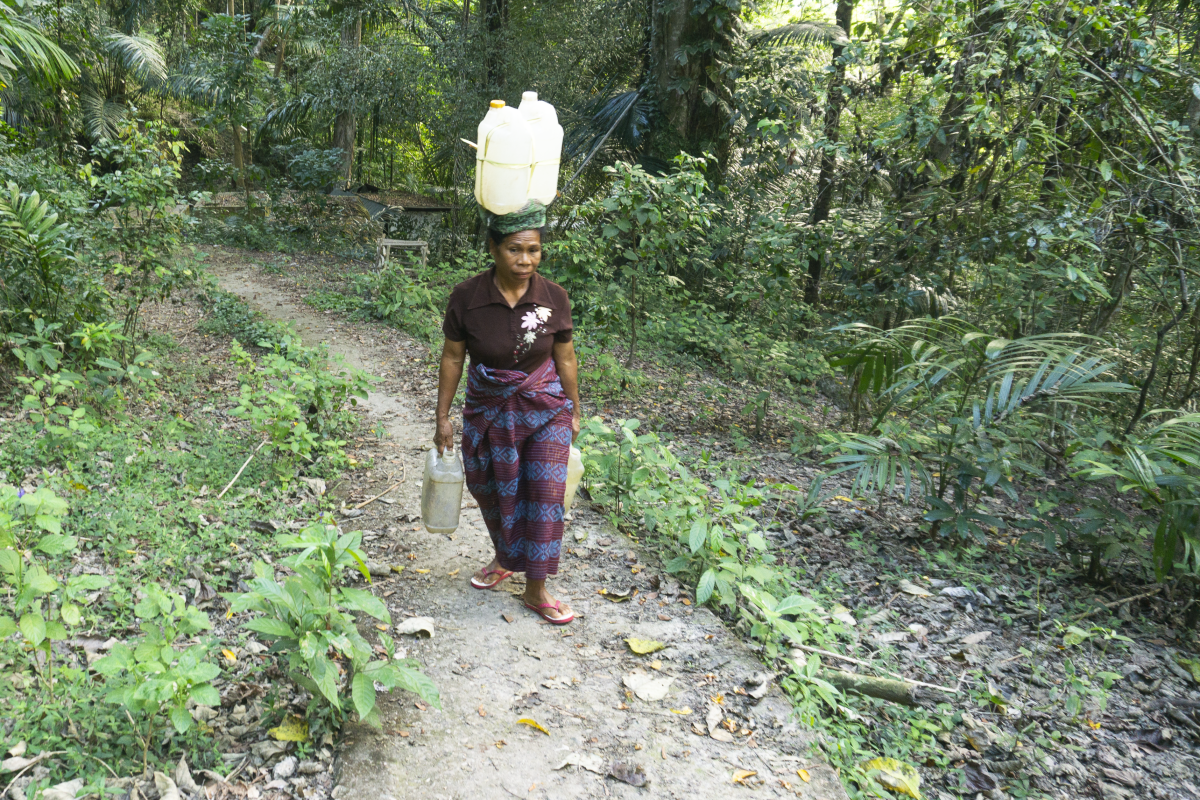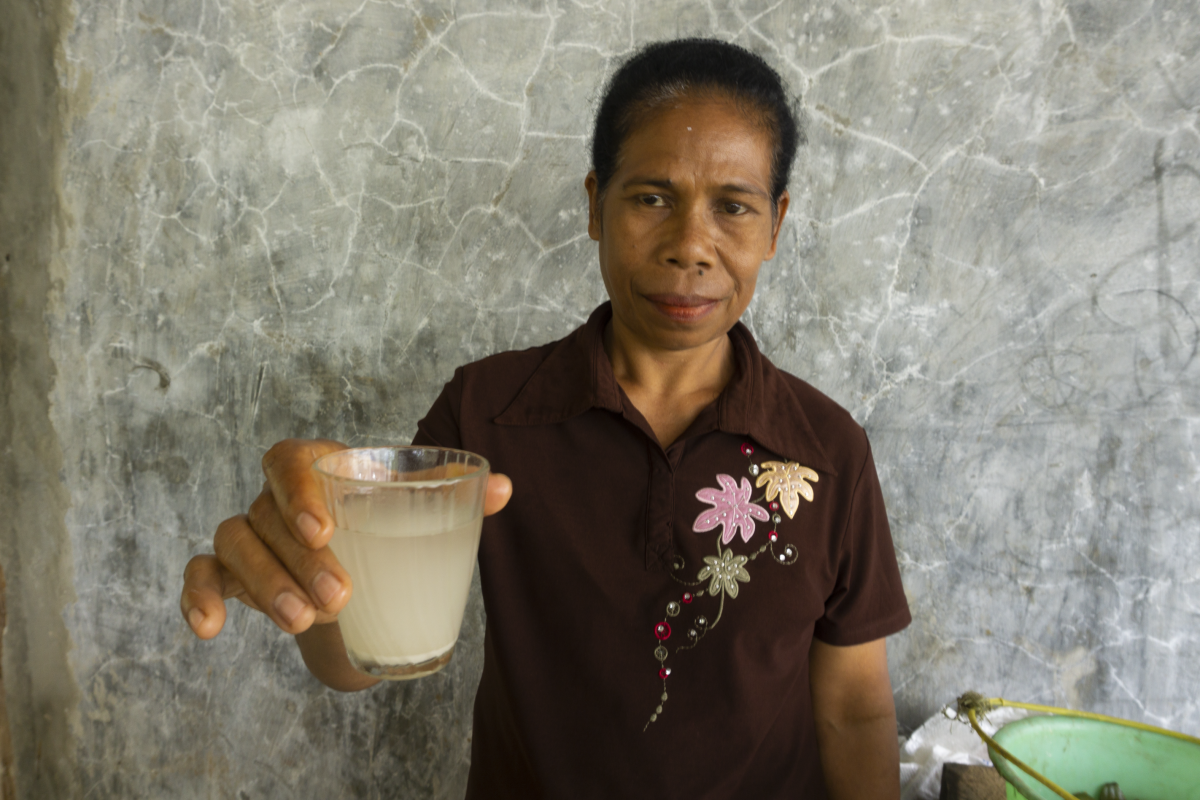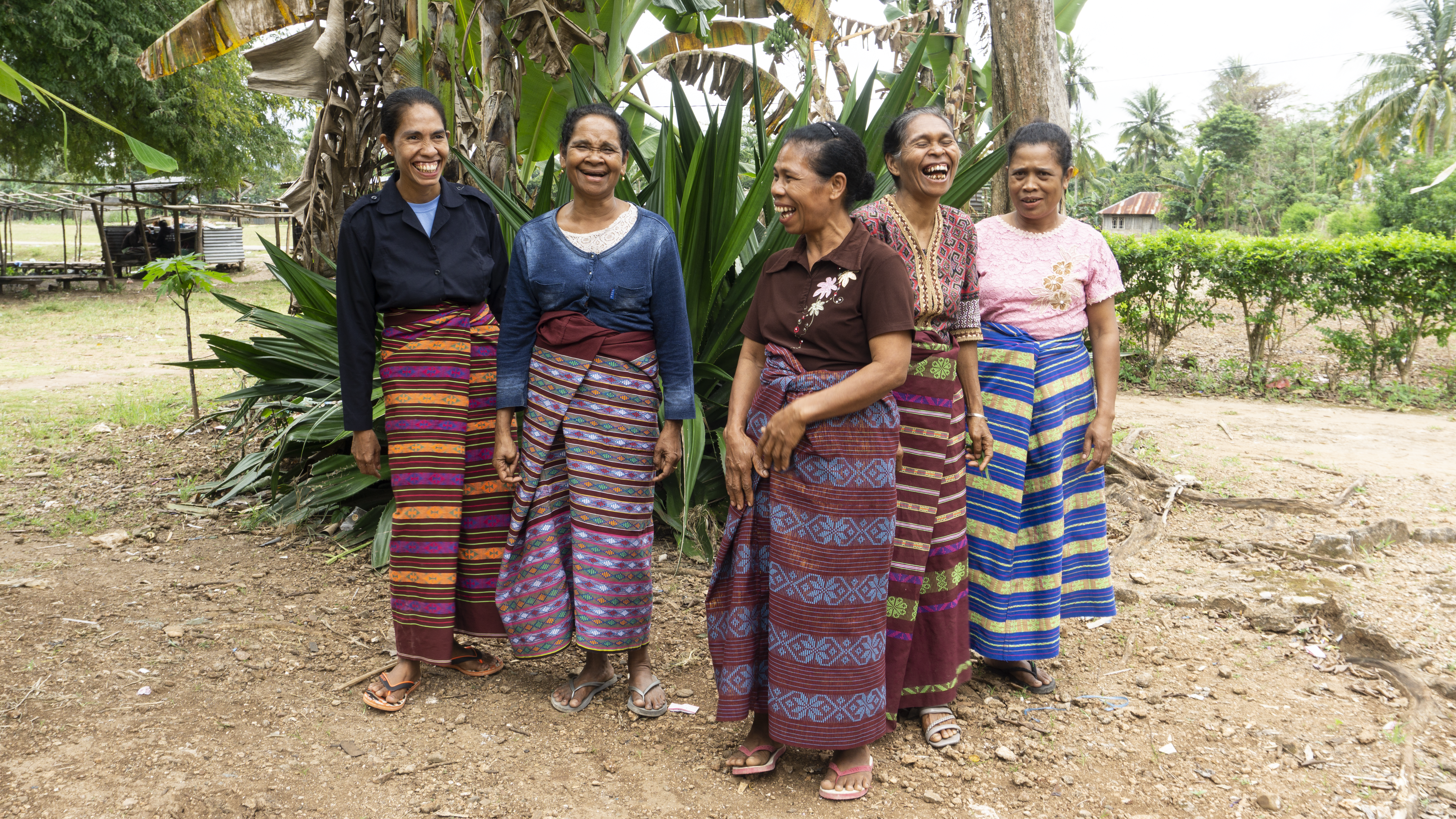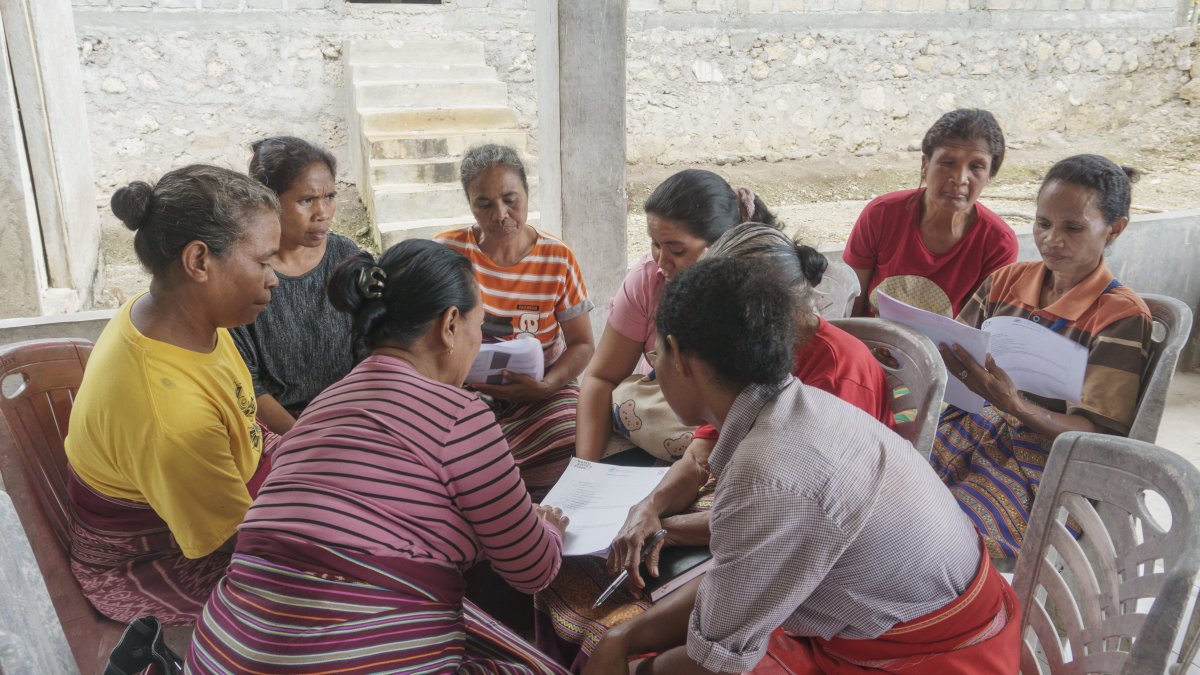A healthier and freer life: how water can make all the difference for women in Indonesia
In Malaka, a hilly area in the region of West Timor in Indonesia, everything revolves around water. Water close to home is often unavailable. And the water that is available isn't clean. 'Even when we're sick, we still have to go out to fetch water or pay a high price.'
Every day starts the same for Anggelita Funan (51) from Tunabesi: with a nearly half-kilometer trek there and back up a steep hill to fetch 20 liters of water, which she carries home on her head. Later in the day, a second trek follows. 'That's all the water we have as a family for the day.' The water Anggelita collects from the well isn't clean. The biggest problem is that it has a lot of calcium. So it has to be filtered and boiled twice before it's safe to drink.

Clean water unaffordable
'We can buy clean water from a water tank, but that's very expensive. It costs Rp 250,000 (13 euros, ed.) and it doesn't even last a week. We can't afford it.'
Yet, Anggelita's family sometimes has no choice but to pay this high price. 'Recently, my whole family was ill. No one could walk to the well. So we had to wait a long time for a water tanker to come and bring us the expensive water. Meanwhile, we were without water. If we had better access to water, everything would be better.'

Making money by weaving
Besides fetching water, Anggelita is responsible for the entire household: she cooks, cleans, and cares for her livestock. Like many women in her village, she also earns money by weaving traditional Indonesian fabrics, an important cultural tradition the women are very proud of. 'I could spend days weaving the time I spend fetching water, but sometimes I don't even get around to it, or I'm just too exhausted from carrying water. Yet I have to do it every day. We can't live without water.'

Motivation to find solutions together
Fortunately, Anggelita finds a lot of support from the other women in her village, especially from the other members of the weaving group. 'If there's no water, we all have to work to fetch it. It affects all of us. It's nice that we can discuss this with each other. It motivates me to come up with solutions together.'
She says that she and the other women went to the local government to raise the issue of water shortage. 'I'm impressed that they were willing to listen to us, but they still came up with some striking, real solutions. The most important thing is that everyone in our village has access to clean drinking water close to home.'

Wish for the future
Anggelita's wish may sound simple, but it requires structural solutions. Simavi wants to contribute through the Water Justice Fund here in Malaka. This fund supports local women's groups in implementing their own water solutions. The women themselves are put in charge: they determine and implement the projects, and Simavi supports them with training and subsidies. For Anggelita, it would make a world of difference if her life no longer revolved around water. "All we want is to be able to meet our basic needs. We want to be able to live a healthier and freer life. Then I can focus on providing for my family and passing on our weaving tradition to the next generation.
Do you want to support women like Anggelita? Participate in the Week op Water and raise money for the Water Justice Fund


